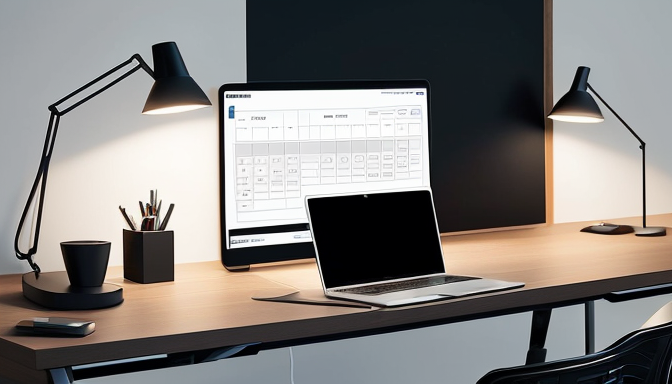In today’s fast-paced world, where every second counts, the question arises: can AI assistants truly elevate our personal productivity? Imagine having a digital companion that can manage your schedule, remind you of important tasks, and even help you make decisions. Sounds like a dream, right? Well, with the latest breakthroughs in AI technology, this dream is quickly becoming a reality. AI assistants are not just tools; they are becoming integral parts of our daily lives, reshaping how we approach our work and personal tasks.
These intelligent systems are designed to learn from our behaviors, making them increasingly adept at anticipating our needs. For instance, they can analyze your calendar and suggest optimal times for meetings or even automate repetitive tasks that drain your energy. This means you can focus on what truly matters—whether it’s a work project or spending quality time with loved ones. AI assistants can be your personal productivity superheroes!
However, as we embrace these technological marvels, we must also consider the implications they bring. With great power comes great responsibility, and the integration of AI into our lives raises questions about privacy and dependency. Are we risking too much by relying on these digital helpers? The answer may not be straightforward, but one thing is clear: the landscape of productivity is changing, and AI assistants are at the forefront of this transformation.
The Benefits of AI Assistants
AI assistants are revolutionizing the way we manage our daily tasks, offering a plethora of benefits that can significantly boost personal productivity. Imagine having a digital companion that not only helps you organize your schedule but also automates mundane tasks. With AI at your side, you can reclaim precious hours that would otherwise be lost in the chaos of daily life. These assistants excel in time management, allowing you to prioritize tasks effectively and ensuring that deadlines are met without the usual stress.
One of the standout features of AI assistants is their ability to automate repetitive tasks. Think about it—how much time do you spend on activities like setting reminders, sending emails, or managing your calendar? With AI, these tasks can be handled seamlessly. For instance, an AI assistant can analyze your habits and suggest optimal times for meetings or breaks, enhancing your workflow. This level of organization not only saves time but also provides the mental clarity needed to focus on more important projects.
Furthermore, AI assistants can help you stay organized by integrating with various tools and applications. Whether it’s syncing your to-do lists or managing your documents, these digital helpers create a centralized hub for all your productivity needs. This interconnectedness means you can access everything you need at your fingertips, making your workflow smoother than ever. In a world where every second counts, having an AI assistant is like having a personal productivity coach, guiding you towards success.

Challenges and Limitations
While AI assistants have revolutionized the way we manage our daily tasks, they are not without their challenges. One of the most pressing issues is privacy concerns. As these intelligent tools become more integrated into our lives, they collect vast amounts of personal data. This raises questions about who has access to this information and how it is being used. Imagine sharing your secrets with a friend, only to find out they’ve been telling others your business!
Another significant challenge is the potential for dependency. As users become accustomed to relying on AI for even the simplest tasks, there’s a risk of losing essential skills. Think of it like learning to ride a bike: if you always have training wheels, you may never master balancing on your own. This dependency can hinder personal growth and creativity.
Moreover, AI assistants often struggle with understanding human emotions. They may misinterpret context or fail to recognize subtle cues, which can lead to frustration. For instance, if you ask your assistant to schedule a meeting after a tough day, it might not grasp your need for a break, leading to a back-to-back schedule that feels overwhelming.
In summary, while AI assistants are undeniably powerful tools for enhancing productivity, we must navigate their challenges carefully. Balancing their benefits with awareness of their limitations is crucial for a harmonious relationship with technology.
Frequently Asked Questions
- What are AI assistants?
AI assistants are software applications that use artificial intelligence to perform tasks or services for individuals. They can help with scheduling, reminders, information retrieval, and more, making daily tasks easier and more efficient.
- How can AI assistants improve my productivity?
By automating mundane tasks, managing your calendar, and providing timely reminders, AI assistants free up your time, allowing you to focus on more important activities. Think of them as your personal productivity coaches!
- Are there any privacy concerns with using AI assistants?
Yes, privacy is a significant concern. AI assistants often require access to personal data to function effectively, which can lead to potential data breaches or misuse. It’s essential to understand what data is collected and how it’s used.
- Can AI assistants understand emotions?
Currently, AI assistants have limitations in understanding human emotions. While they can recognize certain phrases or tones, they lack the emotional intelligence that humans possess, which can affect their ability to respond appropriately in sensitive situations.
- Will I become too dependent on AI assistants?
That’s a valid concern! While AI assistants can enhance productivity, over-reliance may lead to decreased problem-solving skills. It’s essential to strike a balance and use them as tools rather than crutches.